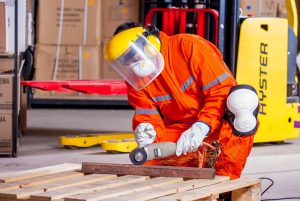 As of Monday 3rd July, Health and Safety Executive (HSE) inspectors have begun a targeted inspection initiative focusing on manufacturing businesses where materials that contain silica are used. This will include brick and tile manufacturers and foundries. Their Dust Kills campaign is well underway.
As of Monday 3rd July, Health and Safety Executive (HSE) inspectors have begun a targeted inspection initiative focusing on manufacturing businesses where materials that contain silica are used. This will include brick and tile manufacturers and foundries. Their Dust Kills campaign is well underway.
The inspections, which start Monday 3 July, are checking that employers and workers know the risks involved when dealing with respirable crystalline silica (RCS) and that businesses have control measures in place to protect workers’ respiratory health.
It is estimated that around 500 deaths occur every year in Great Britain as a result of workplace exposures to RCS.
ARE YOU AWARE OF THE RISKS ?
Inspectors are checking that employers and their workers know the risks and have control measures in place to prevent exposure to RCS which can cause irreversible lung disease if breathed in over time.
Employers should talk to their workers about the risks, and how to avoid them. Make sure they understand how a job should be done safely without creating risks to their health.
Silica is a natural substance found in most stones, rocks, sand, and clay. Silica particles are produced during many manufacturing tasks involving these materials. Over time, exposure to silica particles can harm a worker’s ability to breathe and cause irreversible, often fatal, lung diseases.
UNDERSTAND THE DANGERS!
Exposure can cause serious health problems and may lead to an early death. By breathing it in, your workers could develop the following lung diseases:
HSE’s head of manufacturing David Butter said: “It’s important that manufacturing businesses act now to ensure they comply with the law and protect their workers from serious lung diseases. Businesses should take note that good ventilation in the workplace and personal protective equipment are just some of the measures they need in place to protect the respiratory health of workers.”
Contact us for further information.
Guest post